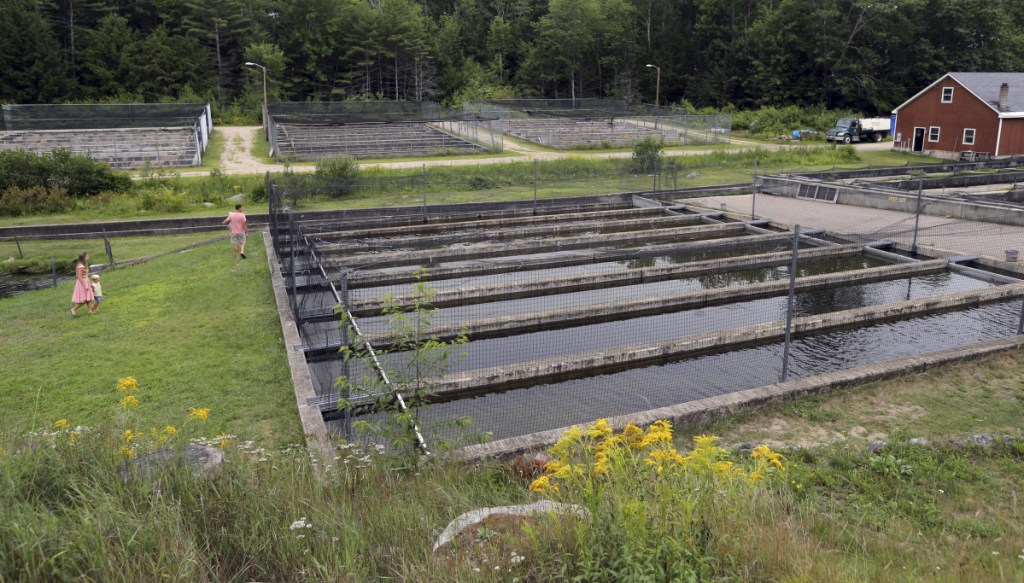CONCORD, N.H. — An environmental group plans to sue New Hampshire’s largest fish hatchery, alleging that discharge from the facility is polluting nearby lakes and rivers.
The Conservation Law Foundation announced its plans Thursday to sue the New Hampshire Fish and Game Department and its commissioners over discharges from the Powder Mill Fish Hatchery in New Durham. It now must wait 60 days before filing a lawsuit in federal court.
In its letter, the group alleges that hatchery food and waste containing high levels of phosphorous, nitrogen and other pollutants have caused “significant water quality violations” in the Merrymeeting River and nearby waterways. The notice alleges that the discharges are in violation of the hatchery’s federal permit which, in turn, violates the federal Clean Water Act.
Among the Conservation Law Foundation’s biggest concern is algae growth and outbreaks of cyanobacteria, which they claim have sickened people and animals, hurt property values along the river and prompted the state to ban activities like swimming in some waterways. The waterways aren’t used for drinking water.
“It’s unthinkable what this state facility has done to the Merrymeeting River, degrading its health and putting the public’s health at risk with cyanobacteria outbreaks,” said Tom Irwin, director of Conservation Law Foundation New Hampshire. “During the heart of the summer, people want to swim, boat and enjoy New Hampshire’s rivers and lakes. They don’t want to be told ‘stay out’.”
Fred Quimby, a retired environmental toxicologist who lives in New Durham where the hatchery is located, said the state has known about the problem for more than 15 years and has failed to take appropriate action to address the dirty discharges. He said cyanobacteria outbreaks have become more common, leading to some people getting skin rashes and animals dying.
“We feel terrible,” Quimby said. “We love this fish hatchery, but now this fish hatchery has polluted the rest of the river and all of the town’s ponds to the point where we can no longer recreate in them.”
The hatchery is the state’s largest and has been praised for helping restock the state’s waterways with several fish species, including trout and landlocked salmon.
State officials said they were not able to comment on the specific allegations made by the Conservation Law Foundation. But they insisted the hatchery was not in violation of any state discharge limits.
“The department will continue to do whatever it can do to address and meet any water quality standards that may be imposed in the future,” Jason Smith, chief of the Inland Fisheries Division for the New Hampshire Fish and Game Department, said in an emailed statement. “Being one of the state’s natural resource agencies who manages, restores and protects natural resources, water quality and healthy environments are of the upmost important this agency.”
Quimby said he believed the state knows it has a problem and even came up with engineering designs for a system to treat the wastewater. Now, he said the state just needs to install that system to prevent further water declines and outbreaks of cyanobacteria.
“They say they ran out of money before they could implement that plan and they basically are saying they have no money now to do that,” Quimby said.
Send questions/comments to the editors.



Success. Please wait for the page to reload. If the page does not reload within 5 seconds, please refresh the page.
Enter your email and password to access comments.
Hi, to comment on stories you must . This profile is in addition to your subscription and website login.
Already have a commenting profile? .
Invalid username/password.
Please check your email to confirm and complete your registration.
Only subscribers are eligible to post comments. Please subscribe or login first for digital access. Here’s why.
Use the form below to reset your password. When you've submitted your account email, we will send an email with a reset code.